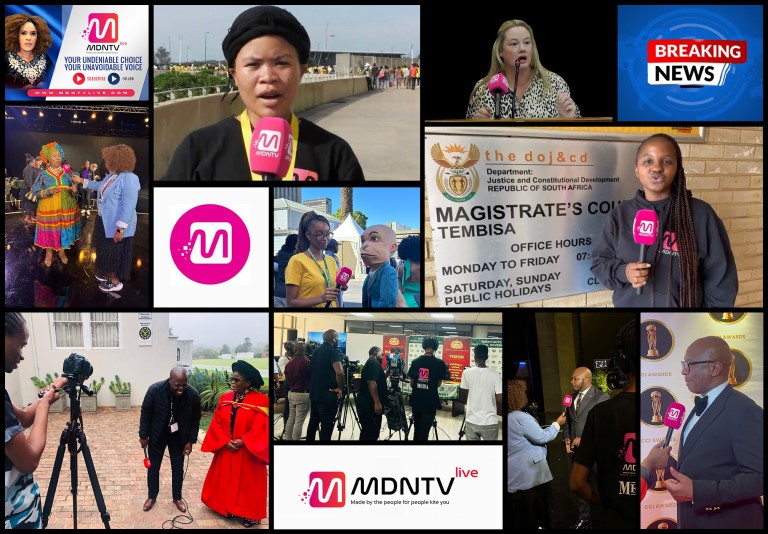| 2025/04/10 |
|
Emperors Palace, Kempton Park, Gauteng
Deputy Minister of Police, Mr Cassel Mathale present here and Ms Polly Boshielo (in absentia), It has been a long three days – we are finally at the end of our National Policing Summit. Over the past three days, we have engaged in intense deliberations, shared critical perspectives, and most importantly, listened—both to each other and to the citizens we serve. The Summit is conceptualised not as a once off; not Minister or National Commissioner linked, but as a standard practice that this Cabinet would endorse and allow to be held every 5 years. The design is aimed at accommodating three broad elements and merging them into one – viz: a) the nature of the current levels of crime trends, effectiveness and efficiencies of our current practices, measures and interventions; b) assessing the current gaps, weaknesses, flaws and challenges in the policing systems in South Africa, and finding resolutions to them; and c) imagining future needs / challenges, effectiveness and efficiencies. The human factor was accommodated through a 3-day workshop in February that sought to recognise human capital. A number of resolutions were taken, including the following: a) Our members are exposed to traumatising situations, and thus require support in respect of mental health. We will be establishing a toll-free number (hotline) for 24/7 access to Employee Health and Wellness services and programs (trauma debriefing and peer support networks). This is a medium term measure we will be implementing. b) Very often, our members who have been tasked with providing emotional support to their fellow colleagues do not themselves get the necessary attention. We will be introducing the Care for the Care-giver Programme to encourage Employee Health and Wellness professionals to take care of self as a way of avoiding “Compassion Fatigue” – this is a short term measure which we will be implementing by the end of the year. c) the organisational structure, which speaks to form and functionality has been finalised by the Ministry; we will be introducing a Detective Investigator allowance and explore if there are any other allowances which would need to be reviewed or introduced and this would be dependent on the available budget; we will be reviewing the promotion policy to make it affordable but also to boost the morale of our members. These matters will be tabled in the SSSBC for engagement and finalisation. We recognised the need for real support to policing and police. I do want to mention, that following conclusion in the PSCBC, there has been a 5.5% cost of living adjustment, and an increase in the service allowance for all operational members, inclusive of the Detectives, from R 700.00 to R 950.00 with annual CPI adjustment and a housing allowance increase to R 1900.00 – this was implemented on the 1st of April 2025. With these increases, comes a responsibility – we want to discourage members from borrowing money and being indebted but we also want to encourage them to make use of the housing allowance and purchase homes. We are appealing for police stations to be elevated and are calling for policing approaches that work. We have constantly maintained our stance on corruption within the SAPS and our commitment remains unwavering. The recommendations from the Commission, which dealt with ethics and corruption, include: improve awareness of sound ethical conduct, and implement improved proactive measures to avoid having to resort to reactive measures such as disciplinary hearings as well as restructuring the SAPS anti-corruption units into one corruption fighting unit. The Summit got the attention of the nation, eliciting a lot of interest and opening us to new challenges while sensitising us to current ones. The big question is: “do we have capacity and energy to implement the outcomes?” This is the buzz word outside. I hope that the Summit served as a refresher, energiser and a platform for renewal – both personally and as a collective. Our solemn duty is to serve the citizens of our country by ensuring that they feel safe each day and deliver justice and fairness. Criminals, even in South Africa, with its environment in relation to criminality, pursue personal interests, we pursue public interest and have a legitimacy to remove them from our communities. Our top priorities are: – reducing murder – removing unnecessary firearms from communities – removing drugs – fighting GBV & F The next package of crimes includes: stock theft, Cash-In-Transit heists, kidnappings and extortion. To this end, several key enablers are at the top of our agenda: • The adoption and improvement of technology; • Strengthening our Crime Intelligence; • The capacitation and upskilling of our detective services; • The revitalisation and expansion of our forensic services; and • Improvement of general environment under which police officers work. If we can’t remove these, let us go out there and remove the criminals themselves.
|
|
|

